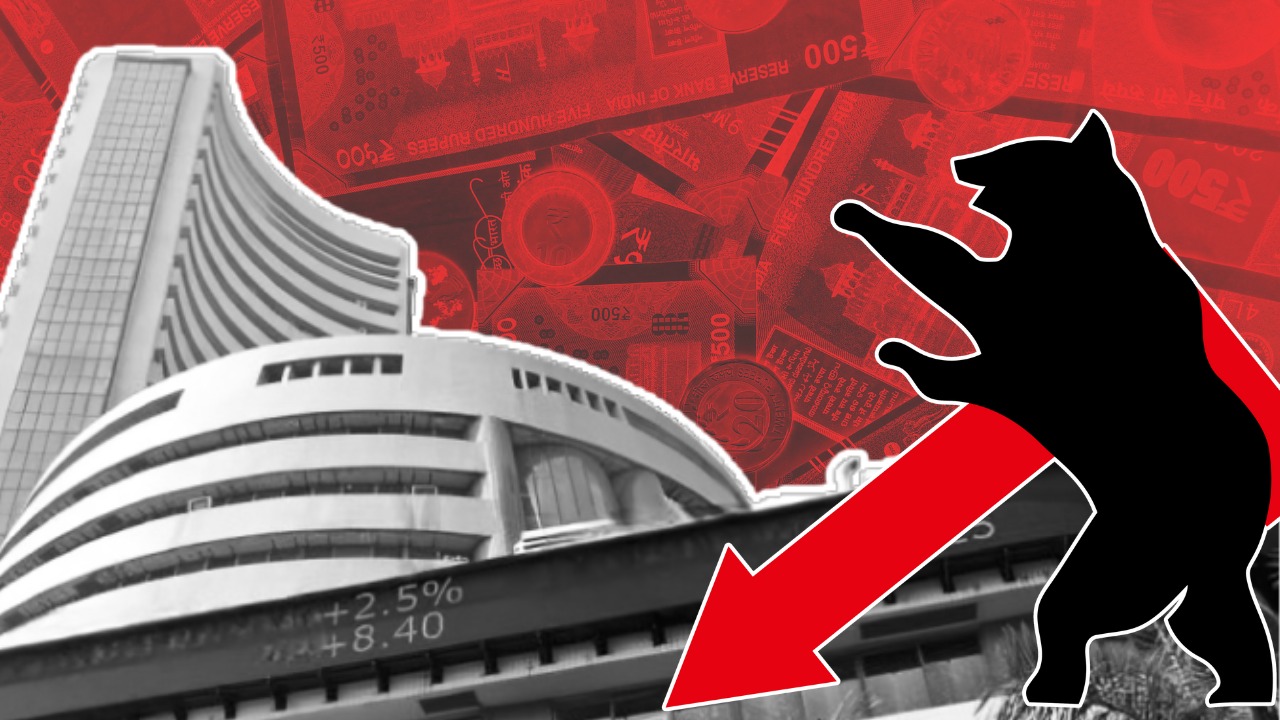
(Photo : BT Creative)
- The Indian stock market saw a significant downturn, with Sensex and Nifty closing down by more than 1%.
- The sell-off was primarily driven by banking stocks, with all sectors except IT and realty experiencing losses.
- Rupak De, Senior Technical Analyst, LKP Securities, noted growing pessimism in the market, with the index holding below key short-term moving averages.
- Despite the downturn, the market's historical performance suggests potential for recovery, advising investors to remain vigilant and make informed decisions.
The Indian stock market experienced a significant downturn on Tuesday, with a broad sell-off across all sectors except IT and realty. The main benchmark indices, Sensex and Nifty, closed down by more than 1 per cent at the end of trading. The Sensex fell 820.97 points, or 1.03 per cent, to 78,675.18, while the Nifty settled at 23,883.45, down 257.85 points, or 1.07 per cent.
The sell-off was primarily driven by banking stocks. The Nifty Bank fell 718.95 points or 1.39 per cent to 51,157.80. The Nifty midcap 100 index closed at 55,257.50 after falling 596.25 points or 1.07 per cent, and the Nifty smallcap 100 index closed at 17,991.60 after falling 233.55 points or 1.28 per cent.
Among the sectoral indices, PSE, auto, PSU Bank, financial service, pharma, FMCG, metal, media, energy, private bank, and infra were the major losers. In the Sensex pack, NTPC, HDFC Bank, Asian Paints, SBI, Tata Motors, JSW Steel, Maruti, Power Grid, Bajaj Finance, M&M, Bajaj Finserv, Nestle India, Axis Bank, and Kotak Mahindra Bank were the top losers. However, Sun Pharma, Infosys, and ICICI Bank were the top gainers.
Market Analysis and Expert Commentary
On the Bombay Stock Exchange (BSE), 1,236 shares were trading in green, 2,234 shares in red, and there was no change in 91 shares. Rupak De, Senior Technical Analyst, LKP Securities, commented on the market's performance, stating, The Nifty slipped from its recent consolidation on the daily chart, indicating growing pessimism in the market. The index has been holding below key short-term moving averages, specifically the 21-EMA and 50-EMA, further weakening sentiment.
De further noted that the daily RSI is declining, accompanied by a bearish crossover. In the short term, the index may move towards the 23,600-23,650 range, while resistance on the higher end is seen at 24,000. He also mentioned that the rupee traded weaker by 0.01 rupees, closing at 84.40, as FIIs continued their selling spree in the Indian market.
However, the rupee received some relief from falling crude and gold prices. The reduced pace of decline could potentially improve India's import bill in the coming months. This is a significant development, considering the current economic climate and the impact of global market trends on the Indian economy.
Historical Perspective and Market Resilience
Historically, the Indian stock market has experienced similar downturns. For instance, during the global financial crisis of 2008, the Sensex fell by over 60% from its peak in January 2008 to its lowest point in March 2009. However, the market recovered strongly in the following years, demonstrating the resilience of the Indian economy.
* This is a contributed article and this content does not necessarily represent the views of btin.co.in









